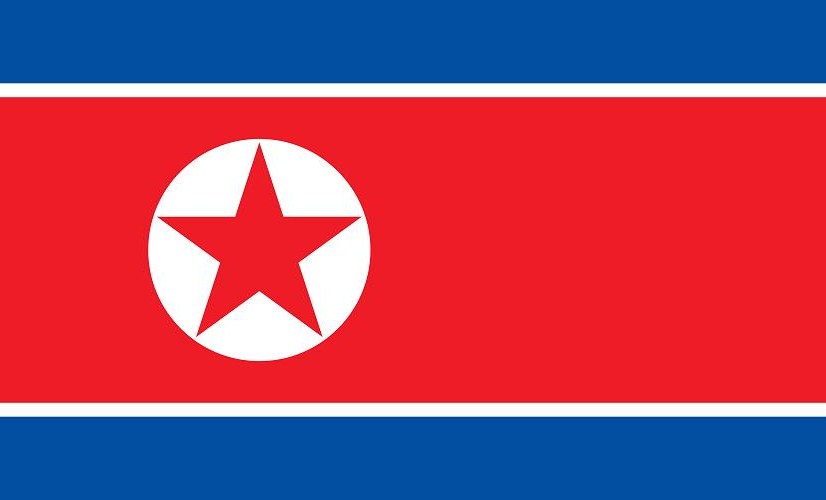25 January 2018
The North Korean Nukes
Too early to relax.
By John Watson
 Phew! And I mean phew! North Korea is sending athletes to the winter Olympics. Well, that’s a relief. Maybe there is still a row or two to go about whether they can sing political songs, maybe the propaganda war with the US will continue, but at least North Korea and South Korea are talking. People are so much less likely to blow up neighbours who they speak to. Perhaps, then, we can put the North Koreans on the backburner and worry instead about the fighting between the Turks and the Kurds. At least a nuclear holocaust looks less likely than it did.
Phew! And I mean phew! North Korea is sending athletes to the winter Olympics. Well, that’s a relief. Maybe there is still a row or two to go about whether they can sing political songs, maybe the propaganda war with the US will continue, but at least North Korea and South Korea are talking. People are so much less likely to blow up neighbours who they speak to. Perhaps, then, we can put the North Koreans on the backburner and worry instead about the fighting between the Turks and the Kurds. At least a nuclear holocaust looks less likely than it did.
Maybe that is true. But, if so, only just. In reality only a small part of the risk has been removed.
It is natural to see the behaviour of other countries through the prism of international relations, but actually domestic politics are usually the main driver. Try looking at Britain with the eyes of an outsider. What do you see? A country well-sewn into the fabric of Western Europe, its strong economy based on its position as financier to the EU. Looked at from the outside, how could we possibly have jeopardised this by voting to leave? But look into the domestic politics and the picture is different. The focus then is on “those just able to manage”, a younger generation which sees its prospects crippled by housing shortages and university fees, the struggles of the health and education services to perform against the background of austerity, the failure to push the benefits of EU membership out into the provinces, the concern that the very shaping of society has been usurped by a remote bureaucracy based in Brussels. Then you have a more domestic view of the UK and you begin to see why the referendum went as it did.
Now let us try to look at North Korea domestically. Actually, we don’t know that much about it but it is clearly a dictatorship and dissenters are harshly dealt with. The regime is not slow to shed blood in defence of its position. What, then, do we think will eventually happen? Will the dictatorship last forever? That seems unlikely as it becomes steadily harder to exclude ideas in the face of modern technology. Will there be some sort of change? Presumably eventually, even if it is only the replacement of one dictatorial regime by another. How will change occur? Probably not through the ballot box. So there must be a likelihood of some sort of struggle with the outgoing Government’s back against the wall. Those who have seen the film “Downfall” about the last days of the Third Reich will be conscious of how random and unhinged a regime can become when faced with extinction. What would have happened if Hitler had had nuclear weapons? Would he have stepped back and said “Keep away from the button, the consequences are too dreadful and the response would mean the annihilation of the German people” or would he have fired them off? What will happen when the death knell sounds for the regime in North Korea?
Let’s hope that we’re just lucky and that it doesn’t end like that. Let’s hope that the outgoing politicians surrender power. Or that the nuclear key is removed from them before they become desperate enough to use it. There are many possible scenarios and there is always a chance that fate will select one of the better ones. No nukes were fired off on the breakup of the Soviet Union. Still, it makes you think. In the same way as experts on aeronautics will tell you that the most dangerous parts of any flight are take-off and landing, so any country is at its most dangerous and irrational at a time of regime change. It isn’t just North Korea, either. Nuclear technology is becoming far more accessible and many more states will be obtaining it. A lot of them will go through some form of internal revolution. No doubt we will be lucky with some. But all of them? The gods of mathematics shake their heads incredulously at the very mention of this possibility.
So what on earth can we do? Get rid of them? Sounds good but puts the world at the mercy of any despot who manages to develop them covertly. Stop others developing them? That is clearly not practicable while others have them. Look, after all, at the attempts to restrain North Korea. Move them to some sort of international organisation whose only role would be to deter other states from developing them? Better, but who would run it? If it was the UN it would not deter a goldfish. A board appointed by the big three superpowers? A little Orwellian perhaps but more likely to work than the earlier possibilities.


